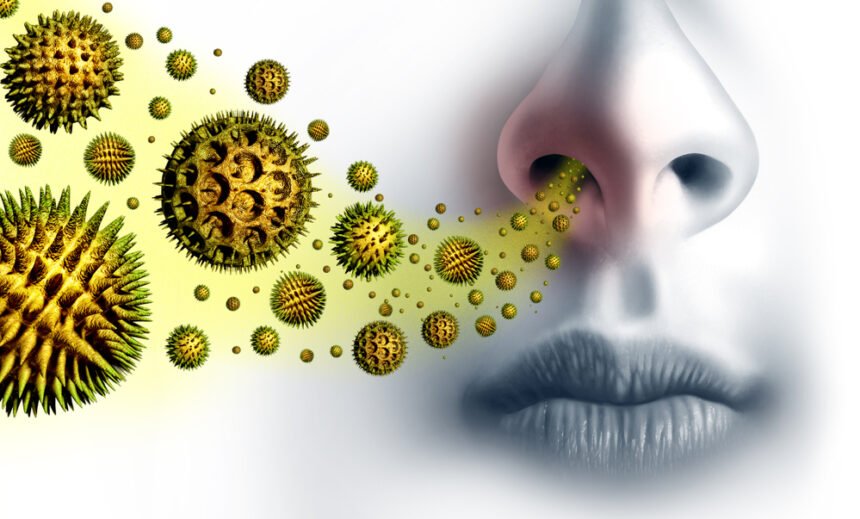What Is Pollen?
Have you ever wondered how flowers keep blooming year after year in the wild? Even without gardeners, you find vast landscapes lush and green and brimming with life. All this is made possible by hordes of busy little bees that transport something called pollen from one flower to the next.
Pollen is basically the sperm cells of male plants. When you closely inspect a flower, you will find male flowers producing stamens whose tip is coated with a powdery substance. This is pollen, and it is how many plants carry their genes forward to a new generation.
Why Is Pollen Important?
Pollen contains the genetic information of a plant. Using pollen, you can cut out or encourage different traits in plants. In the wild, pollen is how nature keeps forests populated. Without pollen, these lands would slowly be depleted of the foliage that now covers them. Without pollen, we also wouldn’t have the variety of flora we have today.
Pollen is spread through different ways through a process called pollination. It can be distributed by bees, the wind, or other insects. Because of the variety of pollen distributors, we get plants that are always evolving and becoming stronger. Thus, it plays a critical role in establishing and maintaining the ecosystem of different areas.
Why Do We Get Allergies to Pollen?
Human allergies are a fascinating subject of study. No one has been able to pinpoint exactly why we have allergies. However, we have found out that we often develop allergies to things we are exposed to the most. Research has shown that there are some genetic traits that predispose us to become hypersensitive to substances around us.
Pollen is in the air around us. Every springtime, the invisible natural world around us erupts with pollen carried around by the air and the insects. Though we don’t feel it in any way, humans are routinely exposed to a large amount of pollen beyond most geographical limitations. This is why we get allergies to pollen. Humans also develop allergies to other everyday things we are exposed to, like pet hair or milk.
How Can I Stop Pollen Allergies?
There is no way to stop pollen allergies. Since you cannot stop breathing in the air around you, you will have to make your peace with being exposed to pollen.
Unless you have prohibitively expensive genetic testing done, you cannot be sure of whether you have the genetic predisposition of developing pollen allergies. However, you can keep an eye on the pollen index in your area to see when a flareup will occur.
What Is the Pollen Index?
A pollen index or pollen count is the number of pollen spores in the atmosphere measured per cubic meter of air. A high score on the pollen index means that you should take precautions about your allergies or avoid going out that day. Pollen indexes are essential because hay fever is one of the most common allergies in the country and can keep people at home for days on end.
What Steps Can I Take to Prevent Pollen Allergies?
There are a lot of great ways to fight pollen allergies. Some important tips are listed below.
Wear Eye Protection
One of the ways pollen gets into your system is the eyes. During hay fever season, make sure you keep your eyes protected as much as possible. People who wear prescription glasses already have a certain amount of protection on them. For those who don’t, consider investing in wraparound glasses for when the pollen count is high. This can help you reduce the intensity of your allergic reaction by lowering the spore load you come into contact with when you go out.
Body Care
If you step outside during times the pollen index is high, your clothes and body will be covered in vast amounts of pollen. Since these are microscopic spores, you will not be able to simply brush them off. When you come back into the house, make sure you discard the clothes you wore outside. Try and take them off away from your bed or bathroom since you are likely to stay in them the most. Take a shower and thoroughly clean off your body. This will reduce the amount of spores you bring inside with you and get rid of any lingering on your skin.
Vaseline
Another entry point for pollen spores is your nose. You breathe in the pollen, and this triggers an allergic reaction in your body. While pollen allergies are easy to treat with antihistamines and corticosteroids, you don’t want to take medicines every day. It can reduce the efficacy of these medicines as you develop tolerance to them over the years. Instead, to reduce the amount of pollen you breathe in, you can put a small amount of petroleum jelly around your nasal openings. This will trap the pollen before it gets into your system.

